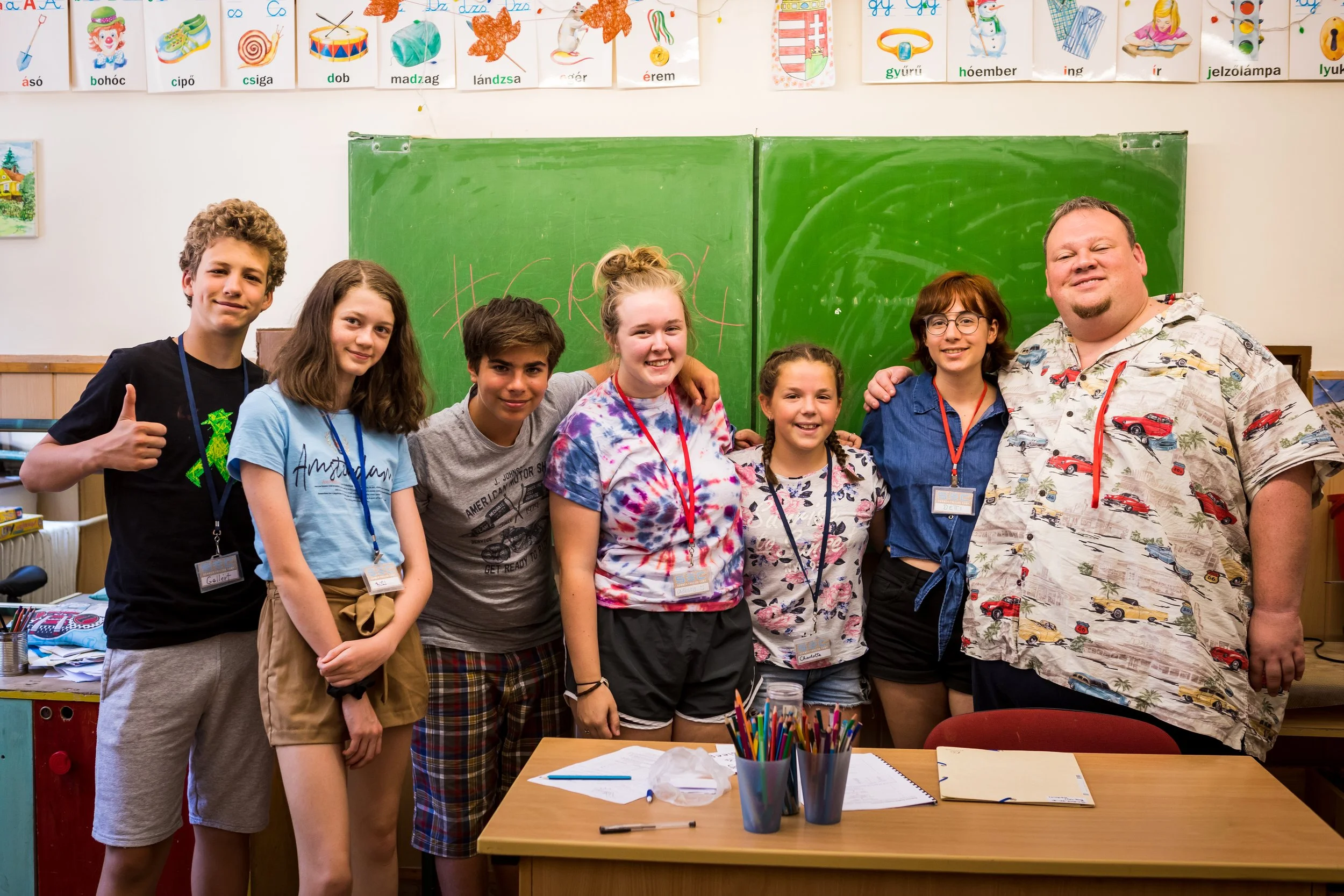What’s Your Why?
While I was preparing to leave for Hungary this spring, one of the most frequent questions I received from friends and family was, “Why? Why Hungary, or missions, or an unpaid internship?” It was a fair question. Why was I going to spend my entire summer working for a summer camp in a country I’d never been to, helping teach a language I had no formal training in, with people I’d never met before in my life? To be very honest, I didn’t really know. I would tell people that it was because I wanted to travel, or because I wanted to try something new, but really I knew about as much as they did. All I knew was that I had been called to spend my summer in service and Hungary was where I was led.
Unfortunately, I couldn’t escape this question, even after I landed in Hungary. One of Jonathan’s favorite things to discuss with new team members is the question, “What’s your why?”, which is essentially asking, “Why do you do the things you do?” When I heard this question, my stomach tensed. I had no idea why I was in Hungary, but I couldn’t say that to my boss in the first week of knowing him. We talked about big things like connection and justice in relation to Jesus, and I began to feel as though the borders of my “why” were coming into view. I rested on those big concepts for a couple of weeks as the team prepared for camp. However, I felt like there was something missing in this loose definition that I wasn’t able to name yet.
As the first week of English camp began, I was nervous about the role that I would play. Although I had some camp experience, the feeling of not knowing why I was in Hungary was taking root and creating anxiety where it did not belong. I am also a fairly introverted person, and the thought of spending all day every day with strangers was starting to freak me out. In short, I was spiraling just a little bit.
Luckily, those feelings began to dissipate shortly into the first full day of camp. As I began to meet the campers and build relationships, my comfort levels increased. One of the first campers I was able to befriend was Péti.
During the first day of camp, Péti was extraordinarily quiet and tended to situate himself just outside of the group. However, Péti was also one of the kindest people at camp and earned student of the day very early on in the week. Suddenly, everyone seemed to know who he was, no matter how invisible he tried to make himself. One day, he was sitting alone on one of the stone walls during free time. Since he was alone again, I decided to sit with him and try to have a conversation. I asked Péti why he was always so quiet, and he responded that he just liked it. I explained to him that I am also a very quiet person and that sometimes I have to work very hard to be a little more outgoing so my quietness does not limit me. He responded by nodding silently.
After that conversation, I made it my goal to be Péti’s friend throughout the week. We talked about books and history and writing, and sometimes we would have picnics on that same stone wall during free time. These interactions brought me so much joy, but what was even better was watching him interact with the rest of the staff throughout the week. In the days following our first conversation, Péti managed to create a secret handshake with nearly every member of the camp staff. He was smiling, practicing his English, and even initiating conversations with people. Saying goodbye to Péti was nearly impossible (especially considering he almost refused to leave at all), and he continued to come to visit us through the second week of camp. On one occasion, he brought me a couple of bags of Russian tea, because he had remembered our discussion from almost a week ago in which I said that I loved tea. In the span of a week, Péti had made a complete 180º turn from the silent kid in the corner I met on Sunday.
As English camp has come to a close and I’ve begun preparing to return to the U.S., I’ve started considering my “why” again. The big concepts of connection and justice that Jonathan and I addressed at the beginning of the summer certainly felt significant, but they were lacking in the personal element. If I must use big words and vague concepts to explain it, my “why” is the transformation that comes from intentional love towards others. However, my “why” is not a big concept. My “why” is in a secret handshake that was never quite perfected. It is in a long conversation on which war is objectively the best war. My “why” is a kid sitting alone on a stone wall, waiting for someone to love them.


